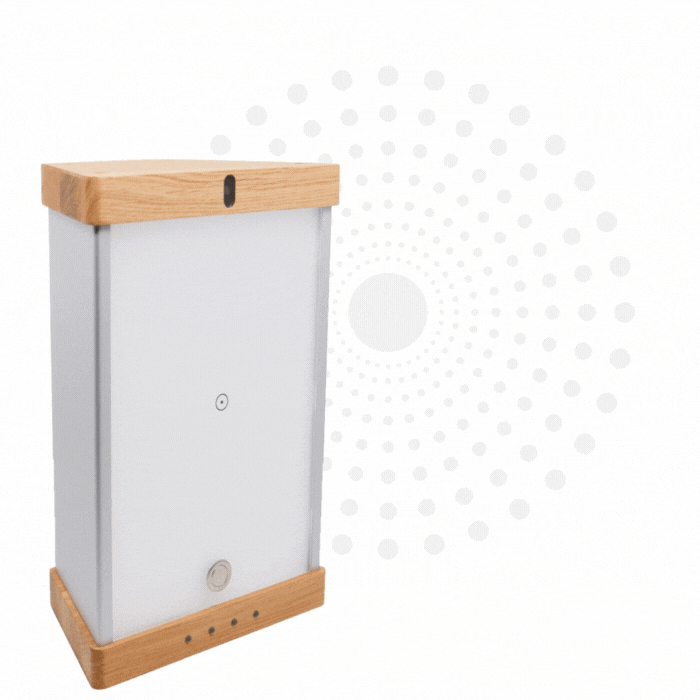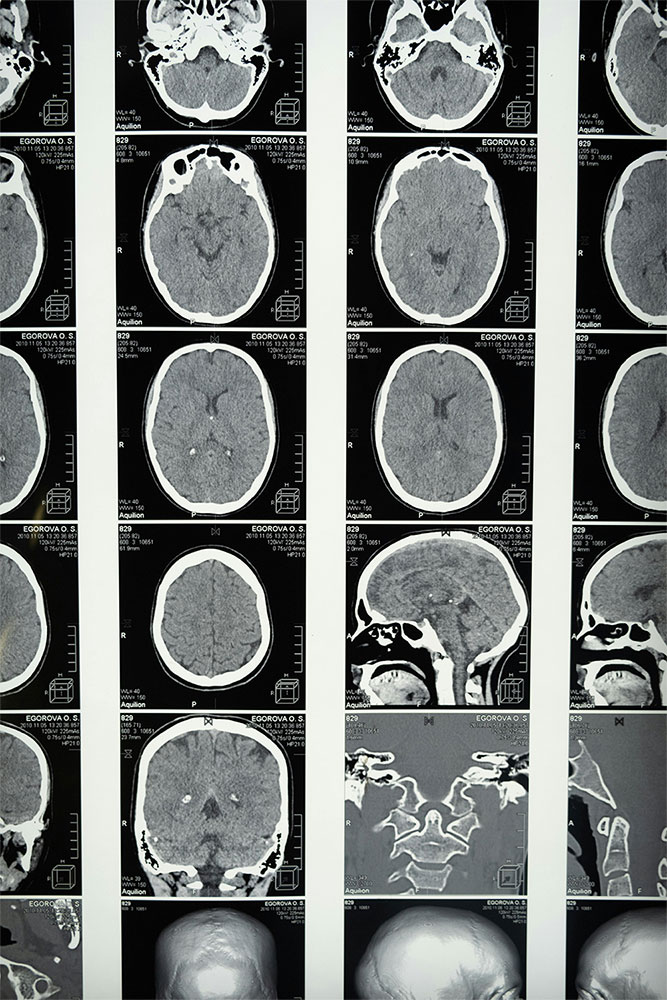
Christopher Ravn
Key Takeaways
1. Amnesia and dementia are distinct conditions with different causes, symptoms, and progression, though both involve memory loss.
2. While dementia is a progressive neurodegenerative disorder affecting various cognitive functions, amnesia is typically a sudden and often temporary loss of memory.
3. Memory loss can occur without dementia, as it can be caused by factors like stress, medication side effects, or other medical conditions
Table of Contents
1. Amnesia Vs. Dementia?
2. What Is The Difference Between Dementia And Amnesia?
3. How Are Amnesia And Dementia Dissimilar?
4. What Type Of Amnesia Is Dementia?
5. Can You Have Memory Loss Without Dementia?
6. Does Memory Loss Turn Into Dementia?
7. How Does Memory Loss Affect A Person With Dementia?
8. How Do You Tell The Difference Between Alzheimer's And Amnesia?
9. How To Tell The Difference Between Dementia And Age-Related Forgetfulness
10. Is Forgetfulness Always Dementia?
11. Is Mild Cognitive Impairment (Mci) The Same As Amnesia?
12. Is Alzheimer's A Type Of Amnesia?
13. Frequently Asked Questions About Dementia Vs Amnesia
Amnesia Vs. Dementia?
- Retrograde amnesia that has issues recalling events or a specific moment in time.
- Anterograde amnesia is when someone has issues picking up new information after a specific event.
- Transient global amnesia is a sudden loss of memory that may last a few hours or days.
- A brain disorder, medical condition, or other infection that is causing neurological amnesia.
- Psychological or emotional trauma may be the cause of functional amnesia.
- Alzheimer’s Disease accounts for 60–80% of dementia cases.
- Anterograde amnesia is when someone has issues picking up new information after a specific event.
- The reduction in blood flow to the head as a result of a stroke causes vascular dementia.
- The presence of an abnormal protein known as Lewy bodies in the brain is what causes Lewy body dementia.
- The frontal and temporal lobes of the brain degenerate, which is the cause of frontotemporal dementia.
- Mixed dementia, which results from two or more different types of dementia.
What Is The Difference Between Dementia And Amnesia?
The difference between dementia and amnesia is that they are different in terms of brain disorders that affect memory and cognitive function. Though memory loss is part of the condition, it has distinct symptoms, progression, and effects on one’s memory. Thus, one needs to learn how to talk to someone with short-term memory loss.
For instance, amnesia affects memory, which causes issues recalling events, people, or information, thus leading to the inability to retain new information or form new memories. Dementia affects memory on a broader scale, such as language, problem-solving, judging, and mood. Patients also have issues with communication, social interactions, and daily activities.
As for how it progresses, head trauma, infection, or drug side effects are frequently the causes of amnesia. However, there are some cases where amnesia is the symptom of a more serious condition, but it may be reversible. The degeneration of brain cells in dementia worsens over time, impairing daily life. This degeneration is caused by the collection of abnormal proteins such as amyloid plaques and neurofibrillary tangles.
To add on, the effects of amnesia are short-term, which makes it difficult to recall recent information or events, but the person may still learn new information. However, dementia affects both short- and long-term memory, leads to difficulty remembering new information or past experiences, and worsens over time, causing confusion and memory loss. Thus, it is beneficial to learn how to help someone with dementia remember.
How Are Amnesia And Dementia Dissimilar?
- Amnesia is classified as retrograde or anterograde memory loss. It is when the person cannot recall past events or generate new memories and experiences memory loss over a short period of time. However, the prognosis shows that people normally fully recover or suffer from mild long-term memory issues.
- Dementia affects memory, language, problem-solving, and decision-making. The progression of this ailment takes place over a long time, either years or decades. A slow decline in a patient’s cognitive function affects their daily life. The prognosis for dementia is seen as a slow progression with treatments but there is no cure for this condition.
We Believe Prioritizing Brain Health Enhances Your Quality Of Life
Get to know our team, our mission and how our EVY LIGHT® can provide you and your loved ones with a fuller life, letting you breathe a little easier.
What Type Of Amnesia Is Dementia?
- Dementia is similar to amnesia in terms of memory loss but it affects other cognitive impairments such as language and problem-solving skills.
- It is challenging for dementia patients to perform daily tasks and it is due to diseases or injuries such as vascular dementia, Alzheimer’s Disease, and traumatic brain injury.

Can You Have Memory Loss Without Dementia?
- The patient is going through a period of high-stress levels that causes them to have lapses in memory or issues concentrating.
- Side effects from medication such as antidepressants, antihistamines, and sedatives may cause side effects such as memory loss.
- Suffers from nutritional deficiencies in vitamin B12, B6, and B9
- Depression
- Anxiety
- Head injury or a concussion
- Infections such as meningitis or encephalitis
- Hypothyroidism (underactive thyroid)
- Deficiencies in Vitamin D, E, and K
- The process of ageing
To differentiate between memory loss and dementia, one needs to:
- Go through a medical and physical test to determine the condition that is contributing to memory loss.
- Undergo cognitive and neurophysical tests to determine issues related to memory, language, and problem-solving.
- Conduct lab tests, such as imaging and blood tests, to rule out any other medical conditions.
- Determine patterns and the intensity of memory loss to determine if it is either dementia or something else.
- Determining if there is an adverse reaction to medication or issues linked with sleep.

Enhance your brain performance through the power of light.
Comfortable and easy to use 40Hz light therapy to support and improve your brain function.
View Our LightDoes Memory Loss Turn Into Dementia?
- Forgets appointments or conversations
- Has issues with their orientation and is unable to tell the time and place
- Unable to communicate well or find the right words to express oneself
- Has changes in mood such as depression or anxiety
- Starts to become withdrawn or paranoid
- Struggles with tasks such as managing finances or taking a shower
- They are unable to recall the event but they may remember the way they felt about it.
How Does Memory Loss Affect A Person With Dementia?
- Issues taking their medication, bathing or dressing up
- Eating or preparing meals that lead to malnutrition
- They forget to wash their hands or brush their teeth, which causes hygiene issues
- Unable to communicate or find the right words or names
- Being disoriented in a familiar place or getting lost
- Feeling frustrated or anxious
How Do You Tell The Difference Between Alzheimer's And Amnesia?
- Alzheimer’s Disease is the slow decline of one’s cognitive function, noticeable personality changes, issues in making decisions and solving problems, being unable to understand written or spoken language or even issues with spatial and visual skills that cause them to get lost.
- As for amnesia, it frequently results from an infection, illness, or head injury and is a sudden loss of memory. Oftentimes, the patient has issues remembering names or conversations, familiar faces or objects, and new information.
How To Tell The Difference Between Dementia And Age-Related Forgetfulness
- Frequency of forgetting items or places, such as appointments or where one kept their keys or glasses.
- It takes a bit longer to process information or make decisions
- Unable to juggle multiple tasks or responsibilities
- Difficulties in remembering details of recent conversations or events
- Struggling to process new information but able to muster the art of learning.
- Issues in managing personal finances, self-care, and even eating
- Unable to remember important appointments or even understand languages such as written or spoken words
- Issues with understanding time, place and even faces
- Experience with depression, anxiety, or agitation
- Determine information striking, patient’s underlying health condition, medication or lifestyle
- Go through cognitive function tests to evaluate memory, attention, language and problem-solving skills.
- Sit for a mental status examination to determine mood, behavior, cognitive abilities
- Use MRI or CT scans to rule out other conditions that may be causing cognitive decline
- Use screening tools such as MMSE and MoCA to assess their cognitive abilities
Is Forgetfulness Always Dementia?
- Forgetting where you placed your car keys and the name of a person
- Unable to remember recent events or issues with multitasking
- Struggle to learn new information.
Is Mild Cognitive Impairment (Mci) The Same As Amnesia?
Mild Cognitive Impairment (MCI) is not the same as amnesia. Though both conditions showcase a decline in cognition, they are different in terms of progression, symptoms, and diagnosis.
MCI is when a person has a decline in their cognitive function, such as memory, language, or problem-solving skills. This is often linked to transitioning from normal age to dementia and does not link with one’s daily life but may increase the risk of developing dementia. Note that you will need to understand whether is mild cognitive impairment a disability when it comes to their work as well. Amneism, on the other hand, is a type of memory loss that involves the inability to remember recent events and new information. Various factors may be linked to it, such as a stroke, neurodegenerative diseases such as Alzheimer’s, and head trauma.
The differences in its symptoms are memory, language impairment, and visuospatial skills. However, amnesia is linked with memory loss. MCI is normally subtle and may not impact daily life compared to amnesia and thus, it is important to learn mental exercises for mild cognitive impairment. MCI normally progresses over time and some individuals may even show signs of improvement or stability. As for amnesia, it may not be the case because it may be sudden and even irreversible. Moreover, MCI may progress into dementia, whereas amnesia is a distinct condition and does not necessarily lead to dementia.
Is Alzheimer's A Type Of Amnesia?
Alzheimer’s is not a type of amnesia, and though both conditions involve memory loss, they are different in their symptoms, effects, and causes. The reason why Alzheimer’s disease is not classified as a type of memory loss is because it affects the elderly and their long-term memory. This causes them to have issues remembering past events, learning new information, and performing daily tasks. However, amnesia affects both short-term and long-term memory, as well as the ability to form new memories.
- Both conditions involve memory loss
- Experiencing confusion, disorientation, and issues with understanding language
- Aphasia is a language disorder in the brain that causes communication issues
- Changes in behaviors such as mood swings, agitation, and aggression.
Learn What Others Have Experienced with EVY Light
See how others have achieved a sharper mind by activating their gamma brainwaves in combination with maintaining a healthy lifestyle.
Frequently Asked Questions About Dementia Vs Amnesia
What Is The Difference Between Dementia And Amnesia?
The difference between dementia and amnesia is that they are different in terms of brain disorders that affect memory and cognitive function. Though memory loss is part of the condition, it has distinct symptoms, progression, and effects on one’s memory.
Can You Have Memory Loss Without Dementia?
- The patient is going through a period of high-stress levels that causes them to have lapses in memory or issues concentrating.
- Side effects from medication such as antidepressants, antihistamines, and sedatives may cause side effects such as memory loss.
- Suffers from nutritional deficiencies in vitamin B12, B6, and B9
- Depression
- Anxiety
- Head injury or a concussion
- Infections such as meningitis or encephalitis
- Hypothyroidism (underactive thyroid)
- Deficiencies in Vitamin D, E, and K
- The process of ageing

























